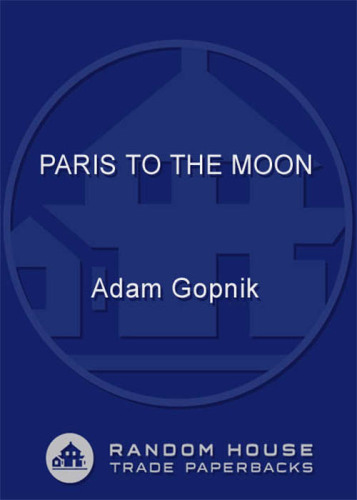
Paris to the Moon
کتاب های مرتبط
- اطلاعات
- نقد و بررسی
- دیدگاه کاربران
نقد و بررسی

Starred review from June 4, 2001
With his wife and infant son, New Yorker
writer Gopnik finds an apartment and settles into the City of Light as a foreign correspondent. Setting aside its frustratingly tangled bureaucracy, he embraces Paris unconditionally. Nuances and subtleties—like the fact that their Christmas-tree lights come in loops rather than strands—are his delight, and he bring listeners such wonderful observations as, "In America all appliances want to be cars, in Paris they all want to be telephones." The author's observations are as much about the art of raising a family in Paris as they are about the city itself: we witness, for instance, the birth of his daughter in a French hospital by a doctor in a black silk shirt unbuttoned to the navel. Gopnik's reading is wry and bittersweet with an acerbic and witty delivery reminiscent of David Sedaris's. Listeners will feel as though they've been transported to a Parisian bistro and are sitting with Gopnik over cups of café au lait. Based on the Random hardcover (Forecasts, Sept. 25, 2000).

Starred review from October 2, 2000
In this collection of 23 essays and journal entries, many of which were originally published in the New Yorker, Gopnik chronicles the time he spent in Paris between 1995 and 2000. Although his subjects are broadDglobal capitalism, American economic hegemony, France's declining role in the worldDhe approaches each one via the tiny, personal details of his life as a married expatriate with a small child. In one essay, he deftly reveals the dynamics of France's 1995 general strike by recounting his ordeal buying a Thanksgiving turkey from the localDstrikingDr tisseur. In "The Rules of the Sport," he explores the maddening, hilarious intricacies of French bureaucracy by way of a so-called New York-style gym, where his efforts to become a member encounter a wall of meetings, physical examinations and paperwork. Many of the entries, such as "The Fall of French Cooking," focus on how Paris is coping with the loss of its cultural might, and look at others of the inexorable changes brought on by global capitalism. "The Balzar Wars" describes a mini-revolt staged by a group of Parisians (including the author) when their local, family-owned brasserie is purchased by a restaurant tycoon. Throughout, Gopnik is unabashedly sentimental about Paris, yet he never loses the objectivity of his outsider's eye. His "macro in the micro" style sometimes seems a convenient excuse to write about himself, but elegantly woven together with the larger issues facing France, those personal observations beautifully convey a vision of Paris and its prideful, abstract-thinking, endlessly fascinating inhabitants. Although the core readership for this book will most likely be loyal New Yorker subscribers, its thoughtful, funny portrayal of French life give it broad appeal to Francophiles unfamiliar with Gopnik's work.

























دیدگاه کاربران